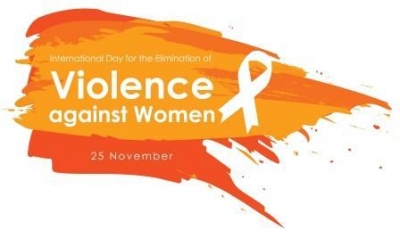Žene migranitice - intersekciionalne značajke rodnog nasilja - EFPA stajalište u povodu 25.11.
U povodu Međunarodnog dana borbe protiv nasilja nad ženama EFPA donosi stajalište kojeg donosimo u izvronom engleskom obliku s naglaskom na ulogu psihologa - Psiholozi imaju vitalnu ulogu u razvoju boljeg društva. Žene migrantice koje su preživjele rodno uvjetovano nasilje ne mogu biti ostavljene, a psiholozi mogu raditi na tome da pojačaju njihov glas i podrže njihovu tvrdnju o dostojanstvenom životu bez nasilja.
MIGRANT WOMEN - THE INTERSECTIONAL FEATURES OF GENDERED VIOLENCE
https://www.efpa.eu/november-25-international-day-elimination-gender-violence-against-women
Joint Statement on behalf of ECPA (European Community Psychologists Association) and EFPA
Migrant women, as any other woman, around the world experience several forms of gendered violence in their host countries, such as domestic violence, sexual harassment, rape, among others.
They are not different from national women, but there are additional risks associated with
a) their precarious immigration status
b) lack of family/social support networks
c) insufficient knowledge about national legislation and rights
d) insecure housing situation
e) social marginalization
f) communication/language barriers
g) racism, stigma and prejudice
To these, risk factors typically experienced by women survivors of violence are added, such as the fear of losing children, the economic dependency from the perpetrator, and feelings of shame (Albanesi, Tomasetto, Guardabassi, 2021; Di Napoli, Procentese, Carnevale, Esposito, & Arcidiacono, 2019; Esposito, Tomai, Nannini, Giardinieri, & Costa, 2018).
Professional and support interventions with migrant women who are survivors of violence must consider these risk factors but also the multiple discriminations arising from the intersection of different power systems (socioeconomic status, sexual orientation, ethnicity, nationality, age), which are intertwined with gender inequality (Cardoso & Ornelas, 2021).
We collected the voices of migrant women in several EU countries from Research & Intervention Projects: see poster
Psychological research can contribute to increase the awareness on intersectional gender-based violence.
This awareness is critical for professionals who work with survivors because:
Understanding the intersecting inequalities a woman experiences, means understanding each woman's specific experience of violence
Understanding each woman’s specific experience of violence allows professionals and support centers to offer programs and services that can contribute to women’s recovery and empowerment
In order to support women survivors of violence in their recovery and empowerment process, community-based partnerships are key.
Community psychologists are specialists in developing community-based partnerships and support networks and they can offer facilitation, monitoring and evaluation.
Community psychologists can support women’s centers and help other professionals, especially psychologists, to adopt complex and situated approaches. In this sense, they can facilitate the understanding of the role played by contextual macro, meso and micro factors in gender-based violence and intersectional discrimination.
Psychologists play a vital role in developing a better society. Migrant women who have survived gender-based violence cannot be left behind, and psychologists can work to amplify their voices and support their claim for a dignified life, free from violence.
MIGRANT WOMEN - THE INTERSECTIONAL FEATURES OF GENDERED VIOLENCE
https://www.efpa.eu/november-25-international-day-elimination-gender-violence-against-women
Joint Statement on behalf of ECPA (European Community Psychologists Association) and EFPA
Migrant women, as any other woman, around the world experience several forms of gendered violence in their host countries, such as domestic violence, sexual harassment, rape, among others.
They are not different from national women, but there are additional risks associated with
a) their precarious immigration status
b) lack of family/social support networks
c) insufficient knowledge about national legislation and rights
d) insecure housing situation
e) social marginalization
f) communication/language barriers
g) racism, stigma and prejudice
To these, risk factors typically experienced by women survivors of violence are added, such as the fear of losing children, the economic dependency from the perpetrator, and feelings of shame (Albanesi, Tomasetto, Guardabassi, 2021; Di Napoli, Procentese, Carnevale, Esposito, & Arcidiacono, 2019; Esposito, Tomai, Nannini, Giardinieri, & Costa, 2018).
Professional and support interventions with migrant women who are survivors of violence must consider these risk factors but also the multiple discriminations arising from the intersection of different power systems (socioeconomic status, sexual orientation, ethnicity, nationality, age), which are intertwined with gender inequality (Cardoso & Ornelas, 2021).
We collected the voices of migrant women in several EU countries from Research & Intervention Projects: see poster
Psychological research can contribute to increase the awareness on intersectional gender-based violence.
This awareness is critical for professionals who work with survivors because:
Understanding the intersecting inequalities a woman experiences, means understanding each woman's specific experience of violence
Understanding each woman’s specific experience of violence allows professionals and support centers to offer programs and services that can contribute to women’s recovery and empowerment
In order to support women survivors of violence in their recovery and empowerment process, community-based partnerships are key.
Community psychologists are specialists in developing community-based partnerships and support networks and they can offer facilitation, monitoring and evaluation.
Community psychologists can support women’s centers and help other professionals, especially psychologists, to adopt complex and situated approaches. In this sense, they can facilitate the understanding of the role played by contextual macro, meso and micro factors in gender-based violence and intersectional discrimination.
Psychologists play a vital role in developing a better society. Migrant women who have survived gender-based violence cannot be left behind, and psychologists can work to amplify their voices and support their claim for a dignified life, free from violence.

